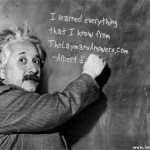 Enlightenment. The moment we consciously connect to eternal truth. It’s when we see through the veil of this illusionary world, rising above ego, time, materialism, and our own emotions to see the bigger picture—that we are all one. It’s what all gurus, spiritualists, yogis, Buddhists, monks, meditators, shamans, artists, writers, and religious leaders strive for. It’s the state Neo reached at the end of The Matrix, the level Dorothy attained so she could surpass time and space and return home, and the brief moment you get a taste of, usually in the shower, when your brain skips a beat on the record of reality, resulting in a little inspiration in line with your true self. But is there any way to speed up the process or at least know how close you are to the fully enlightened experience? I believe there is. And it’s something so unbelievably simple, you’ll be able to master it shortly after reading this blog posts.
Enlightenment. The moment we consciously connect to eternal truth. It’s when we see through the veil of this illusionary world, rising above ego, time, materialism, and our own emotions to see the bigger picture—that we are all one. It’s what all gurus, spiritualists, yogis, Buddhists, monks, meditators, shamans, artists, writers, and religious leaders strive for. It’s the state Neo reached at the end of The Matrix, the level Dorothy attained so she could surpass time and space and return home, and the brief moment you get a taste of, usually in the shower, when your brain skips a beat on the record of reality, resulting in a little inspiration in line with your true self. But is there any way to speed up the process or at least know how close you are to the fully enlightened experience? I believe there is. And it’s something so unbelievably simple, you’ll be able to master it shortly after reading this blog posts.
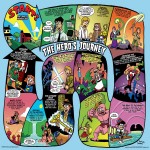 When you’ve seen as many movies as I have, you begin to see that they all follow a certain pattern. This is true not just of movies, but of all great stories ranging from those found in classic mythology and literature to modern TV series and video games. Joseph Campbell called it the monomyth or hero’s journey. It’s basically a series of steps that the protagonist must go through during the course of his or her adventure. In addition to this, there are also a number of spiritual principles that often find their way into storytelling. By combining these principles with the monomyth, you can pretty much figure out where just about any story is headed. While this skill has proven to be incredibly annoying to my wife, it’s come in very handy for me. Not because I’ve continually annoyed her with my usually correct movie and TV show predictions, but because I’ve noticed that these storytelling rules apply to more than just fictitious stories. They also apply to real life.
When you’ve seen as many movies as I have, you begin to see that they all follow a certain pattern. This is true not just of movies, but of all great stories ranging from those found in classic mythology and literature to modern TV series and video games. Joseph Campbell called it the monomyth or hero’s journey. It’s basically a series of steps that the protagonist must go through during the course of his or her adventure. In addition to this, there are also a number of spiritual principles that often find their way into storytelling. By combining these principles with the monomyth, you can pretty much figure out where just about any story is headed. While this skill has proven to be incredibly annoying to my wife, it’s come in very handy for me. Not because I’ve continually annoyed her with my usually correct movie and TV show predictions, but because I’ve noticed that these storytelling rules apply to more than just fictitious stories. They also apply to real life.
 “We’re all connected.” It’s the ubiquitous mantra of new-agey types. Chances are if you’ve ever watched Oprah, were a fan of the TV show Lost, or have read just about anything I’ve written, you are very familiar with this concept. Along with its close cousin “everything happens for a reason,” it’s pretty much become a cliché that isn’t really given much thought. Yet, how exactly are we all connected? Sure, we’re all made of the same elements, live on the same planet, and are plugged into the same Internet, but the phrase usually refers to the idea that all of our minds are somehow connected, that our lives are intertwined, that actions taken by you, now, could somehow affect a struggling shoe salesman living in Uzbekistan. I think it’s about time we explored this concept and saved it from the nether regions of trite, hackneyed banality. After all, if the idea that “we’re all connected” is a given, why doesn’t anyone (with the possible exception of Oprah herself) really believe it?
“We’re all connected.” It’s the ubiquitous mantra of new-agey types. Chances are if you’ve ever watched Oprah, were a fan of the TV show Lost, or have read just about anything I’ve written, you are very familiar with this concept. Along with its close cousin “everything happens for a reason,” it’s pretty much become a cliché that isn’t really given much thought. Yet, how exactly are we all connected? Sure, we’re all made of the same elements, live on the same planet, and are plugged into the same Internet, but the phrase usually refers to the idea that all of our minds are somehow connected, that our lives are intertwined, that actions taken by you, now, could somehow affect a struggling shoe salesman living in Uzbekistan. I think it’s about time we explored this concept and saved it from the nether regions of trite, hackneyed banality. After all, if the idea that “we’re all connected” is a given, why doesn’t anyone (with the possible exception of Oprah herself) really believe it?
 Those who move in spiritual circles often talk about how we are all connected, that our thoughts create our future reality, and that the universe provides us with clues about our direction in life. Personally, I look at spiritual principles as scientific rules that we just don’t understand yet. Not too long ago, the idea that people could get sick from tiny bugs they couldn’t see or that invisible waves could carry images or music was thought to be magical thinking, until science proved it to be true. So if these spiritual principles are indeed a rule of our universe, there should be a way to test and predict their occurrence. Doing this on an individual scale might prove challenging though, since one person’s thoughts may not have enough energy to make something manifest in a testable way. But what if there were an event that millions of people were focusing on, and this event inspired heated, emotionally charged thoughts that could result in only one of two possible outcomes? If only we had such an event, why, we just might be able to predict the future on a grand scale!
Those who move in spiritual circles often talk about how we are all connected, that our thoughts create our future reality, and that the universe provides us with clues about our direction in life. Personally, I look at spiritual principles as scientific rules that we just don’t understand yet. Not too long ago, the idea that people could get sick from tiny bugs they couldn’t see or that invisible waves could carry images or music was thought to be magical thinking, until science proved it to be true. So if these spiritual principles are indeed a rule of our universe, there should be a way to test and predict their occurrence. Doing this on an individual scale might prove challenging though, since one person’s thoughts may not have enough energy to make something manifest in a testable way. But what if there were an event that millions of people were focusing on, and this event inspired heated, emotionally charged thoughts that could result in only one of two possible outcomes? If only we had such an event, why, we just might be able to predict the future on a grand scale!
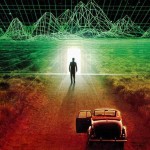 Back in June 2009, I wrote an article titled “Proof That We’re Living a Life of Illusion.” In it, I provided what I felt was overwhelming evidence that we all live in some kind of computer simulation. I also offered some simple explanations as to why I thought we did. At the time, the people who are open to believing in such fantastical theories excitedly agreed with the premise, while those who rely on hard-core scientific proof, did not. Well, a funny thing’s happened in the years since I wrote that article. Scientists are beginning to see the evidence that the non-believers require. The question now is, whether those skeptics will decide to take the blue pill or the red pill?
Back in June 2009, I wrote an article titled “Proof That We’re Living a Life of Illusion.” In it, I provided what I felt was overwhelming evidence that we all live in some kind of computer simulation. I also offered some simple explanations as to why I thought we did. At the time, the people who are open to believing in such fantastical theories excitedly agreed with the premise, while those who rely on hard-core scientific proof, did not. Well, a funny thing’s happened in the years since I wrote that article. Scientists are beginning to see the evidence that the non-believers require. The question now is, whether those skeptics will decide to take the blue pill or the red pill?
 Let me guess, you don’t have time to read this right now, do you? Yes, the holiday season is always busy and yes time seems to go faster as you get older but doesn’t life seem to be moving at an even more frantic pace than usual lately? I know I’m feeling it. But I’ve been expecting this time crunch for a while now, so it may be a bit easier for me to deal with. Since I tend to be pretty sensitive about this stuff, what I wasn’t sure about was whether others would be able to pick up on it too. In the last few weeks however, I’ve heard at least fifteen different people exclaim in near shock about how fast time’s been going lately. And this without my even bringing it up! So, what’s going on? Can time really be going faster? If so, how much faster can it go before we can no longer keep up? And what then? Are we literally running out of time?
Let me guess, you don’t have time to read this right now, do you? Yes, the holiday season is always busy and yes time seems to go faster as you get older but doesn’t life seem to be moving at an even more frantic pace than usual lately? I know I’m feeling it. But I’ve been expecting this time crunch for a while now, so it may be a bit easier for me to deal with. Since I tend to be pretty sensitive about this stuff, what I wasn’t sure about was whether others would be able to pick up on it too. In the last few weeks however, I’ve heard at least fifteen different people exclaim in near shock about how fast time’s been going lately. And this without my even bringing it up! So, what’s going on? Can time really be going faster? If so, how much faster can it go before we can no longer keep up? And what then? Are we literally running out of time?
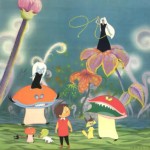 Have you ever tried to track down something you saw on TV as a kid, just to see if it was even real? Many of us are occasionally haunted by snippets of movies and shows we vaguely remember watching when we were children. We may wonder if these memories ever really happened, or if they were dreams. Especially when the memories seem incredibly bizarre! Having grown up in the 70s, I caught a LOT of psychedelic stuff on TV as a kid that I’ve become obsessed with tracking down as an adult. Why? Discovering forgotten moments from our youth is the closest thing we have to time travel. We get to relive an experience we had and to see what actually happened. Sometimes, we may even be shocked to find that the story from way back then provides an answer to our lives now.
Have you ever tried to track down something you saw on TV as a kid, just to see if it was even real? Many of us are occasionally haunted by snippets of movies and shows we vaguely remember watching when we were children. We may wonder if these memories ever really happened, or if they were dreams. Especially when the memories seem incredibly bizarre! Having grown up in the 70s, I caught a LOT of psychedelic stuff on TV as a kid that I’ve become obsessed with tracking down as an adult. Why? Discovering forgotten moments from our youth is the closest thing we have to time travel. We get to relive an experience we had and to see what actually happened. Sometimes, we may even be shocked to find that the story from way back then provides an answer to our lives now.
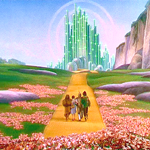 In a New York Press article from August, 2011, film producer and director Tommy Pallotta, said, “I am a fan of audience participation, but I also think audiences like to be told a story. There’s this thing video game designers call a ‘golden path’—there’s a definite way that the majority of people are going to experience the game, and the designers plot that. A lot of the interactivity in a video game is really just the illusion of interactivity. It’s about engaging the audience and giving at least the feeling of volition. But as the artist you have the sense that you are, in some way, controlling it, blending the craft of storytelling with the illusion of agency.” In other words, in a game you think you are controlling the action, but really it’s already been pre-programmed. Kind of like what we think of as destiny. In fact, maybe that’s exactly what destiny is: the path we are meant to take in order to have the most fulfilling experience.
In a New York Press article from August, 2011, film producer and director Tommy Pallotta, said, “I am a fan of audience participation, but I also think audiences like to be told a story. There’s this thing video game designers call a ‘golden path’—there’s a definite way that the majority of people are going to experience the game, and the designers plot that. A lot of the interactivity in a video game is really just the illusion of interactivity. It’s about engaging the audience and giving at least the feeling of volition. But as the artist you have the sense that you are, in some way, controlling it, blending the craft of storytelling with the illusion of agency.” In other words, in a game you think you are controlling the action, but really it’s already been pre-programmed. Kind of like what we think of as destiny. In fact, maybe that’s exactly what destiny is: the path we are meant to take in order to have the most fulfilling experience.
 In anticipation of TRON: Legacy, I recently re-watched a bunch of simulation-world films including The Thirteenth Floor, eXistenZ, and the original TRON, which I hadn’t seen in over twenty-five years. While I remember being somewhat confused watching the futuristic Disney film as a kid, seeing it again with new eyes, I was amazed at how clearly it expressed the “life as illusion” theme I’ve been so fascinated by as an adult. In the original movie, Jeff Bridges is considered a “user.” While Bridges often plays users in his films, in this case, it refers to a computer user who manipulates the scenarios of a digital world that is very similar to our own. In the original film, users are considered mythical, messianic figures who can help free the programs from the game they find themselves in. This got me thinking.
In anticipation of TRON: Legacy, I recently re-watched a bunch of simulation-world films including The Thirteenth Floor, eXistenZ, and the original TRON, which I hadn’t seen in over twenty-five years. While I remember being somewhat confused watching the futuristic Disney film as a kid, seeing it again with new eyes, I was amazed at how clearly it expressed the “life as illusion” theme I’ve been so fascinated by as an adult. In the original movie, Jeff Bridges is considered a “user.” While Bridges often plays users in his films, in this case, it refers to a computer user who manipulates the scenarios of a digital world that is very similar to our own. In the original film, users are considered mythical, messianic figures who can help free the programs from the game they find themselves in. This got me thinking.
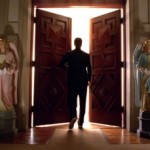 Lost is dead. Long live Lost. And so it ends, in much the same way it began—with a close-up of Jack’s eye, staring straight up past the tall stalks of bamboo that circled the sky above. This time however, that eye would close, and with it, our six-season journey that took us right back to where we started—with questions about a mysterious show that seemed to parallel the mysteries of life. For some, the journey was far more compelling than the destination. For others, it was the perfect resolution and they can walk away feeling fulfilled. Whatever you thought about the conclusion, the one thing most viewers can agree on is that the show challenged us to think in ways we might not have otherwise. In short, Lost was a real trip. And what a long, strange trip it’s been.
Lost is dead. Long live Lost. And so it ends, in much the same way it began—with a close-up of Jack’s eye, staring straight up past the tall stalks of bamboo that circled the sky above. This time however, that eye would close, and with it, our six-season journey that took us right back to where we started—with questions about a mysterious show that seemed to parallel the mysteries of life. For some, the journey was far more compelling than the destination. For others, it was the perfect resolution and they can walk away feeling fulfilled. Whatever you thought about the conclusion, the one thing most viewers can agree on is that the show challenged us to think in ways we might not have otherwise. In short, Lost was a real trip. And what a long, strange trip it’s been.
 Enlightenment. The moment we consciously connect to eternal truth. It’s when we see through the veil of this illusionary world, rising above ego, time, materialism, and our own emotions to see the bigger picture—that we are all one. It’s what all gurus, spiritualists, yogis, Buddhists, monks, meditators, shamans, artists, writers, and religious leaders strive for. It’s the state Neo reached at the end of The Matrix, the level Dorothy attained so she could surpass time and space and return home, and the brief moment you get a taste of, usually in the shower, when your brain skips a beat on the record of reality, resulting in a little inspiration in line with your true self. But is there any way to speed up the process or at least know how close you are to the fully enlightened experience? I believe there is. And it’s something so unbelievably simple, you’ll be able to master it shortly after reading this blog posts.
Enlightenment. The moment we consciously connect to eternal truth. It’s when we see through the veil of this illusionary world, rising above ego, time, materialism, and our own emotions to see the bigger picture—that we are all one. It’s what all gurus, spiritualists, yogis, Buddhists, monks, meditators, shamans, artists, writers, and religious leaders strive for. It’s the state Neo reached at the end of The Matrix, the level Dorothy attained so she could surpass time and space and return home, and the brief moment you get a taste of, usually in the shower, when your brain skips a beat on the record of reality, resulting in a little inspiration in line with your true self. But is there any way to speed up the process or at least know how close you are to the fully enlightened experience? I believe there is. And it’s something so unbelievably simple, you’ll be able to master it shortly after reading this blog posts.









